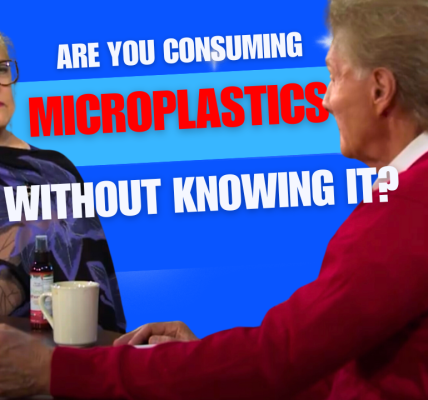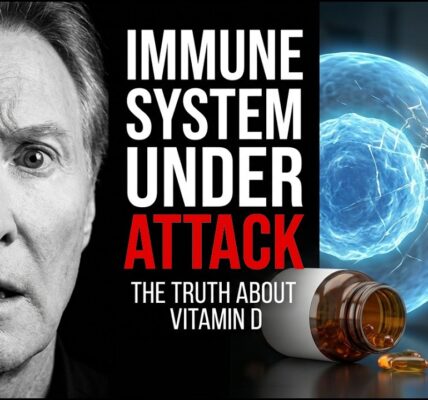Kidney disease affects roughly one in seven U.S. adults—about 14% of the population, or 35.5 million people—yet it remains one of the least talked-about chronic illnesses. In this special blog post, Dr. Colbert sits down with his wife Meredith, his daughter Mary, and grandson Kyle to unpack why kidney health matters, who’s most at risk, and simple, actionable steps you can take right now to protect your most vital filters.
1. Why Is Kidney Disease So Prevalent?
Kyle: “Dad, is it really true that one in seven adults has chronic kidney disease?”
Dr. Colbert: “Absolutely. High blood pressure and type 2 diabetes—both fueled by aging, medication use, and our high-sugar American diet—are the two biggest drivers. Approximately 120 million U.S. adults have high blood pressure, and about 8.4 million have diabetes. Those conditions stress the kidneys over time, leading to CKD.”
Key Fact: People with both diabetes and hypertension face an even greater risk. One in three diabetics and one in five hypertensive adults develop CKD, rising to 20% among Black Americans—making prevention paramount.
2. The Human Cost: Why We Must Act
Mary: “Why is dialysis such a last resort?”
Dr. Colbert: “Dialysis requires three 3-hour clinic visits per week, plus a surgically placed access shunt. It’s exhausting, energy-sapping, and a constant reminder that your kidneys can’t filter toxins on their own.”
Stat: Nearly 785,000 Americans require dialysis or kidney transplant, and the average dialysis patient spends 12 hours per week hooked up to a machine.
3. Diet: The Foundation of Kidney Protection
Meredith: “How does what we eat factor in?”
Dr. Colbert: “Type 2 diabetes is a choice disease—you don’t ‘catch’ it; you develop it over years of refined carbs and sugars. White bread, rice, pasta, pizza, cookies, and soda all spike blood sugar and set the stage for both diabetes and hypertension.”
Action Steps:
-
Healthy Keto or Mediterranean Diet: Both lower blood sugar and blood pressure naturally.
-
Whole Foods Over Refined Carbs: Swap white rice for cauliflower rice, whole grains for white bread, and fresh fruit for sugary snacks.
Study: A 2022 meta-analysis in Nutrients found that Mediterranean diets reduce CKD progression by 30% compared to standard diets (Gutiérrez-Castrellón et al., 2022).
4. Supplements: A Helping Hand for Your Kidneys
Kyle: “Which supplements work best?”
Dr. Colbert:
-
Berberine (600–1,200 mg/day): Improves insulin sensitivity and lowers blood glucose—critical for diabetic kidney protection.
-
Carb Assist®: A blend of berberine and other botanicals to blunt post-meal glucose spikes.
-
Amla (Emblica officinalis): An Ayurvedic herb shown to lower blood pressure in clinical trials.
Fact: Berberine can reduce A1C by up to 1.5 percentage points, rivaling some prescription drugs (Yin et al., 2008).
5. Move More: Exercise as Medicine
Mary: “What’s the simplest exercise?”
Dr. Colbert: “Brisk walking for 20–30 minutes, five days a week, is enough to improve blood sugar, lower blood pressure, and boost kidney perfusion. Activities like pickleball or elliptical workouts work too.”
Stat: Regular aerobic exercise can reduce CKD risk by 18% (Xu et al., 2019).
6. If-Then Strategies: Habit Stacking for Success
Meredith introduces “if-then” planning—pairing a healthy behavior with a cue:
-
If I finish dinner, then I’ll go for a 10-minute walk.
-
If I feel a sugar craving, then I’ll drink a large glass of water first.
Research: People using implementation intentions (if-then plans) are 2.6× more likely to achieve health goals (Gollwitzer & Sheeran, 2006).
7. Beyond Lifestyle: When to Consider Medications
Kyle: “What about prescription options?”
Dr. Colbert: “For those with obesity and uncontrolled diabetes, GLP-1 agonists (e.g., semaglutide, tirzepatide) offer dramatic benefits—20% average weight loss and robust blood sugar control, both of which protect kidneys.”
Study: Tirzepatide users lost 20.1% body weight on average versus placebo (SURMOUNT-1 Trial, 2024).
8. Monitoring & Medications That Hurt
-
Regular Lab Work: Ask your doctor for a CMP panel (creatinine, BUN, eGFR) and urine protein test at least annually.
-
Avoid Long-Term NSAIDs: Frequent ibuprofen or naproxen use reduces kidney blood flow and accelerates CKD.
-
Watch “Hidden” Offenders: Certain antibiotics (aminoglycosides), contrast dyes, PPIs (e.g., omeprazole), and diuretics can stress kidneys—ensure your nephrologist monitors you.
Conclusion & Next Steps
Chronic kidney disease is widespread but largely preventable. By adopting a kidney-friendly diet, key supplements, regular exercise, and if-then habit plans—plus staying vigilant about medications and lab monitoring—you can safeguard your kidney function for decades to come.
Ready for more support? Join Dr. Colbert’s free 21-Day Keto Zone Challenge for daily guidance on beating carb cravings, optimizing your diet, and fueling your kidneys. Click here to join: https://divinehealth.com/challenge
And connect with our Keto Zone community on Facebook for recipes, tips, and encouragement: facebook.com/KetoZoneGroup.
References
-
Gollwitzer, P. M., & Sheeran, P. (2006). Implementation intentions and goal achievement: A meta-analysis. Psychological Bulletin, 132(6), 925–953.
-
Gutiérrez-Castrellón, P., et al. (2022). Effects of the Mediterranean diet on kidney disease progression: A systematic review and meta-analysis. Nutrients, 14(12), 2583.
-
Xu, H., et al. (2019). Physical activity and risk of CKD: A systematic review and meta-analysis. Journal of the American Society of Nephrology, 30(4), 779–789.
-
Yin, J., et al. (2008). Efficacy of berberine in patients with type 2 diabetes mellitus. Metabolism, 57(5), 712–717.
-
SURMOUNT-1 Trial Investigators. (2024). Tirzepatide for obesity management in adults. New England Journal of Medicine, 390(2), 138–149.
















